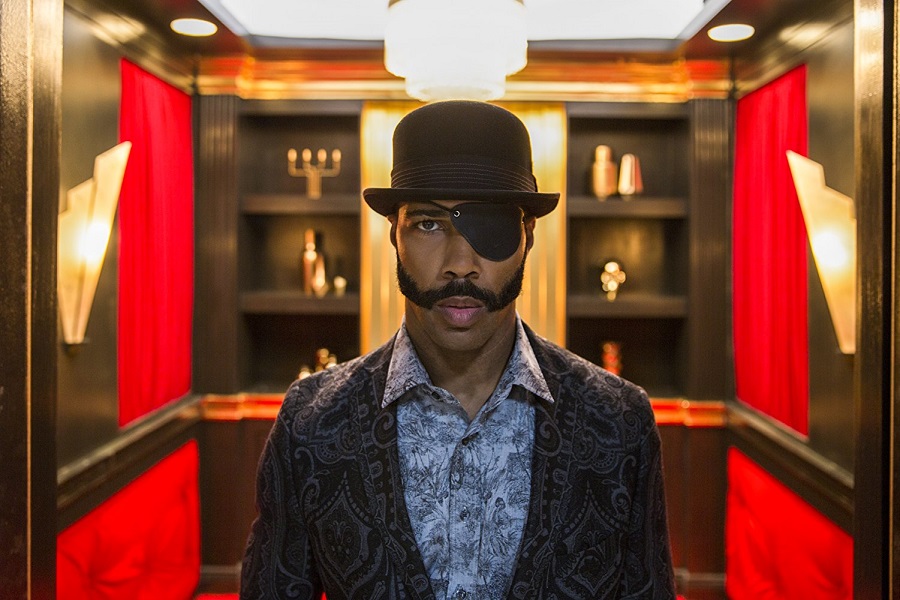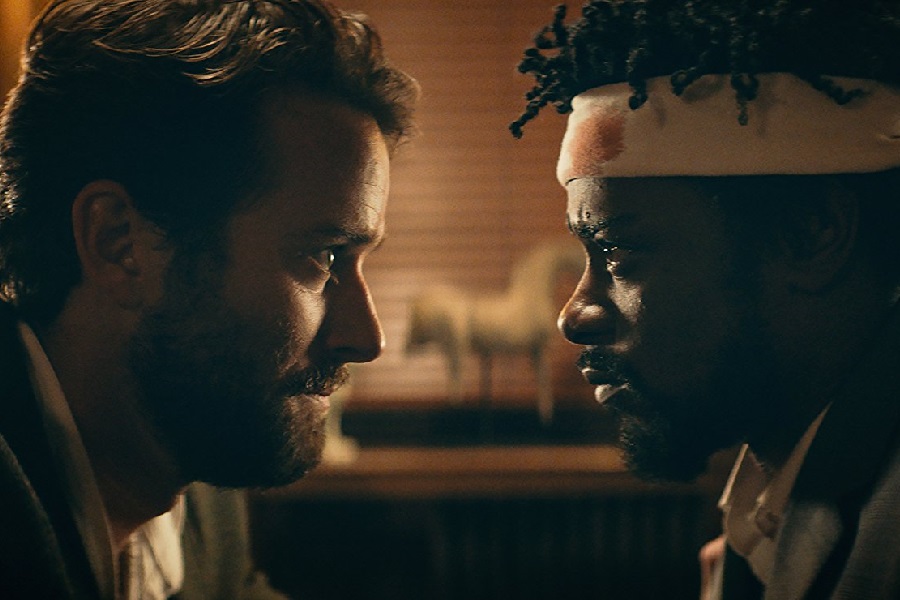Every few years a film burst onto the scene in such a way that expectations can never seem to match word of mouth. At the same time, those movies not only usher in a new cinematic voice, but they’re usually made with such brazen honesty, that should a minor fault exist, it’s likely overlooked. Boots Riley’s Sorry To Bother You is that film for 2018. For better or worse, it’s the movie America needs right now. Equal parts hilarious, terrifying, angry, awkward, disgusting, but never rings a false note. This isn’t just a movie. This is an experience. One that’s best served watched with a large group of people. As there will be much, much to discuss, afterwards.
Call it a cheat or take it as a warning, Sorry To Bother You
is the kind of movie that’s best to go into blind. The way the world builds and expands is best served by knowing very little about it. That’s one of the strange benefits to seeing a film of this caliber at a festival. It’s hard to get too deep into specifics concerning the proceedings, as a good chunk of its majesty simply comes in watching it unfold before you.

In an alternate Oakland, not too far removed from the world of Mike Judge’s Idiocracy (yet not in the future) Cassius Green (Lakeith Stanfield) is trying to keep his head above water. He lives in a makeshift room located in his Uncle’s (Terry Crews) garage. He has a loving artist girlfriend, Detroit (Tessa Thompson), who doesn’t care what “stasis” his life may be in. One day Cassius lands an inauspicious gig at a giant a large telemarketing firm. While not immediately good at his job, he heeds the advice of an “old-timer” (Danny Glover). Doing so finds him overnight success. That’s when, as they say, is when things get totally nuts. The following 90 minutes dive head first into unfettered insanity. Tackling such topics such as art, politics, workers rights, slave labor, racial inequality, selling out and genetic tampering. Oh, and an unhinged Armie Hammer shows up. In a scant for scenes, he proves his career isn’t peaking, its just kicking into high gear.
Comedy, outside of horror, is the most dangerous genre around. In the hands of someone just daring, self-righteous and determined enough is can be a weapon of untold power. That’s the masterstroke here. By making the beginnings of the movie just slightly off kilter, it allows the audience to buy into the world. As the insanity slow stretches to fill every corner of the screen, they’re more susceptible to influences they may not normally take heed of. Better yet, it’s essentially tricking the viewer into thinking, without them readily knowing it. Now it’s not asking that they agree, more so just that they listen. Such subtlety usually isn’t usually at the forefront of most dramas. Therein though is what makes Sorry To Bother You such a triumph. It’s able to be both a frenetically funny comedy, as well as a thick syrupy satire that demands attention.

Sorry To Bother You moves at a rhythm and flow that feels akin to the likes of How To Be A Menace or Hollywood Shuffle. It has the bite of Putney Swope or Bamboozled. An anger towards the workplace and media like Office Space or Idiocracy and the all out insane assault on corporate bureaucracy of Brazil. Yet saying this means nothing. Boots Riley doesn’t refer to or emulate those films, so much as he stakes a claim beside them. In doing so he cements a legacy, only in its infancy. He doesn’t walk a fine line through the movie, juggling absurdity and pointed commentary, he obliterates it, operating on a level all it’s own. That’s a bold bold gambit for a debut feature film, but the likes made only by someone feeling they have just one shot. Thankfully its more than loud enough for its echoes to reverberate for some time.
It’s weird and absurd, but never to the point of alienation. That’s key, because tipping the scales and cards in play too early, would be to lose the audience. A task like that can be difficult even for a seasoned veteran, let alone a director making their debut. The sheer fact Boots Riley pulls it off isn’t just cause for celebration, it’s also study in understanding and control of tone. Something numerous films could stand to learn these days.

There are those who may be turned off by how much the film pushes forward. Who bandy about missteps, or how the film flies off the rails the longer it stays on screen. Yet to pull back at any point, would be to send proceedings into a nose-dive. This is one of the rare instances where crashing and burning is just as much of a success of continual sustained flight. You may not have heard of Boots Riley before, but after seeing Sorry To Bother You, it may be impossible to forget him



